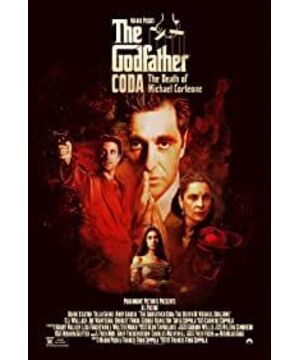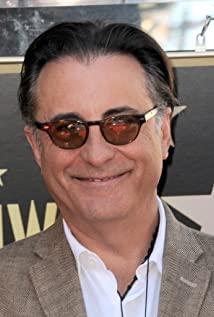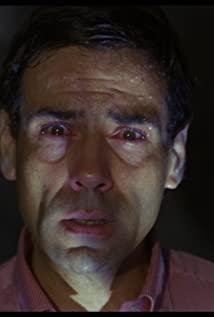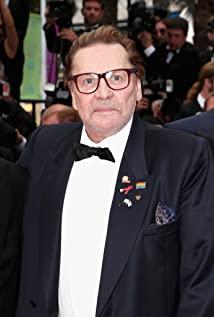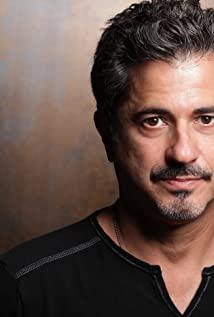[Manuscript for media, please do not reprint]
Although it sounds disrespectful, sometimes they still wonder how many people in this world think that Francis Ford Coppola , who has filmed the "Godfather" trilogy and " Apocalypse Now " ( Apocalypse Now ) ( Francis Ford Coppola), may have been dead for many years?
Compared to the other three of the four new Hollywood masters, Coppola apparently disappeared for too long. Needless to say Martin Scorsese and Steven Spielberg; although George Lucas has not directed the tube for a long time, after the full restart of the Star Wars series in 2015 , His love and hatred with Disney still keeps him on the cusp from time to time.
However, Coppola seemed silent.
After "Four Hundred Years of Vampire Fright" ( Dracula ) in 1992, it is almost difficult for most people to report his subsequent works. Of course, his daughter has already become an important contemporary American film writer; although his nephew still cannot get rid of the title of king of bad movies, he still attracts attention with the output of 4-5 movies per year. But Coppola himself seems to have disappeared in the movie power Vanity Fair of Beverly Hills.
Therefore, when "Godfather III" ( Godfather III ) named " Mario Puzo’s The Godfather Coda: The Death of Michael Corleone " ( Mario Puzo’s The Godfather Coda: The Death of Michael Corleone ), it was announced that it would be re- launched in North America. After the cut was released and the Blu-ray version was released on December 8, people can't help but feel a little surprised. Coppola walked to the stage again, this time is the old man talking about his youth frantically coming out of the arena, or is he reaping the feelings of new bottles of old wine?
Is "The Godfather Finale" a new movie?
On Christmas 1990, "The Godfather III" was released. With an extremely ambivalent mentality, people welcome this sequel to "Godfather II" ( Godfather II ), which has been 16 years since the beginning of the game-a sequel to a dog, or to surpass the predecessor? This is naturally the most concerned issue for the audience.
However, 137 million at the box office though not fail, but compared to ten years ago, "The Godfather" ( Godfather the I ) 2.5 EVA "Godfather II" 0.96 million (without inflation adjustment calculation), which is obviously difficult to make people satisfied. In terms of scoring, the first two scores are as high as 9.2 and 9.0 on IMDb (the former has also suffered from the "Dark Knight" [ The Dark Knight ] mutual exchange of low scores), while the third is only 7.6 points. In the critics, the opinions of experts are also very different. Roger Ebert (Roger Ebert) expressed approval, but Pauline Kael (Pauline Kael) gave a bad review.
7.6 is not a bad score. It's just that, compared with the previous two films, the power of "The Godfather III" is inadequate and it is obvious to all. Coppola himself had a lot of difficulties with this: Paramount had repeatedly hoped that he would vote for "The Godfather III", but the script given was indeed full of bloody violent gangster movies. He only had 1 million screenwriting fees and 6 weeks. Rewrite the script with the screenwriter Puzo; Robert Duvall, who plays the role of Tom Hagen, had been unable to negotiate the price with Paramount, and eventually abandoned the acting; and soon after the start of the game, the important female partner encountered After changing roles due to illness, after many actors declined, finally the important task of "Godfather Daughter" Mary fell to Coppola's daughter Sofia (Sofia Coppola), and also for the future " Lost in Translation " ( Lost in Translation ). The director brought two trophies-the worst newcomer of the golden plum & the worst supporting actress of the golden plum I also complained about my mother's acting skills).
The recut and name change of "The Godfather III" undoubtedly gave Coppola a chance to defend himself. Coppola stated more than ten years ago that during the filming process, he repeatedly complained that Paramount refused to let him try newer, more radical, and more modern techniques (Coppola said he could only use his original Master 8% of the film language) for shooting. And "The Godfather III" is not the original name of Coppola and the original Mario Puzo-it is not a sequel to the first two, but the ending of the first two: writing the final chapter for the fate of each protagonist ——And the original name of this work should be "Godfather Finale: The Death of Michael Corleone". Only in the end Coppola succumbed to Paramount management. Obviously the term "Godfather III" is not very confusing, and who would go to a movie with the word "death" in its title on Christmas Day?
The new version of "The Godfather Finale" re-screened in 2020 deletes some minor paragraphs in the middle (a total of 5 paragraphs, about 5-7 minutes), and adds an end caption. At the beginning and the end, Coppola also made major adjustments. The beginning part deleted the part where the second generation godfather Michael received the honors in the church, but moved the deceitful business negotiation between Michael and Archbishop Gilday at 44 minutes in the 1990 edition directly to the beginning. At the end, the 1990 version of Michael finally put on sunglasses like a walking dead, fell down from the chair, and died; while the 2020 version ended with wearing sunglasses and deleted the 35 seconds after he fell into the chair.
Objectively speaking, the two changes are small and profound. The opening was replaced by a business negotiation between Michael and the bishop, which directly echoed the famous "I Believe in America" in the first part. After more than 30 years, the people sitting opposite the two generations of godfathers never believed in America. The naive funeral director is replaced by a hypocritical archbishop who believes in God, which is quite interesting. At the end, Coppola deleted Michael’s death on the screen, and it did add a little more aftertaste: Although the new version is called "The Death of Michael", although he did not really die before the screen, he was already dead. Still life's grief is no greater than heart death. The irony and the "death" in the title constitute an interesting intertextuality.
In the promotional interview film of "The Godfather Finale", Coppola claimed that he adjusted 360 pictures so that people can even regard it as a brand new movie. But in essence, this "Godfather Finale" has not changed substantially. "Variety" magazine ( Variety ) critic Owen Gray Berman (Owen Gleiberman) directly even say that this re-cut version was renamed "The Godfather Finale" "totally TM exactly the same movie I did not hyperbole; it really It's ." ( It's the same damn movie. I'm not exaggerating; it really is.) A small amount of abridgement of the branch passages did not change the original temperament of the story. Especially for this kind of film that has been in theaters for 30 years, it is almost unrealistic to add new scenes-and the only thing that can be done is subtraction, but the subtraction of less than 10 minutes cannot change the appearance, tone and rhythm of the film.
Coppola also emphasized that he himself likes the term "coda" very much, because coda can reflect that the third work is a "summary and sublimation" of the first two. But coda, a musical term with a strong Italian etymology, has no essential influence on the film except to summarize Coppola's homesickness and the Versailles that sublimate the style of classical music. After all, although the finishing touch is important, it is futile to fail to draw the dragon.
Coppola between the old and the new Hollywood
Why did "The Godfather III" fail? As one of the four new Hollywood masters in the 1970s, who was the first to be respected and recognized by the industry, and was in the limelight for the first time, why did it gradually decline after entering the 1990s and fade out of the first-line vision of the film industry for more than 20 years? Or we can ask another question: Why are Scorsese and Spielberg still fighting, and although Coppola has many feature films coming out, it is rarely sought after?
Before "The Godfather", Coppola was just a young Hollywood director, making a B-level film to survive, and relying on the screenwriter of "Patton" ( Patton ) to earn the first pot of gold in his career. After the project of "The Godfather" was rejected by 12 consecutive directors, Paramount finally found Coppola, an Italian man. The Paramount uniform team didn't expect this young hippie with a beard to make anything, but they did need someone to sit in the director's chair and shout action. But in the end they not only waited for an epic phenomenon, but also ushered in an epoch-making work that melts the old and new Hollywood into a furnace-"The Godfather". "The Godfather" in 1973, along with Scorsese's "Mean Streets" ( Mean Streets ), 1974 Poland Chomsky's "Chinatown" ( Chinatown ), and even in the late 1960s "Bonnie and Clyde" ( Bonnie and Clyde ), " graduate "( at the graduate )," Easy Rider "( the Easy Rider ) together, such as a tornado announces the arrival of the new Hollywood.
At that time, the baby boomer generation had grown up. They were wearing hippie clothes, flying leaves in the theater, while stilting their feet on the backs of the front seats, looking at the screen in a smoky atmosphere. The baby boom not only provided the new Hollywood with a sufficient number of young audiences, but also provided them with the film soil to express the countercultural movement of the 1970s. Although Old Hollywood has not been completely swept into the dustpan, it is no longer the favorite of major studios. The film themes of the new Hollywood generation are more diverse and the techniques are more radical. The personality and status of the director are highlighted, the performance of the actors is more natural, and the studio gradually hides behind. More importantly, New Hollywood treats audiences as adults, rather than giant babies who can sleep soundly and enter Hollywood's old dreams of light and shadow. The younger generation of filmmakers use their precocious skills, aesthetics and critical spirit to break through the routines and formulas established by old Hollywood.
The similarities and differences between the old and the new Hollywood are a cliche, and there is no need to follow things up here. But there is no doubt that in the long period of time after the release of "The Male and Female Thief" and "The Graduate" in 1967, the old and the new Hollywood were by no means completely separated. In "The Godfather", there is a mix of old and new Hollywood. The new Hollywood element in "The Godfather" has long been a familiar stalk of movie fans: the lighting of Gordon Willis, Coppola risked being expelled and advocated for Marlon Brando (Marlon Brando) and Al Pacino (Al Pacino) plays the two generations of godfather, his romantic expression of the gangsters, the more violent and restrained slow motion...
But at the same time, "The Godfather" and even Coppola still have an indispensable old Hollywood background: a regular plot, a linearly structured narrative, and an extremely tight operating mechanism of causal logic. But if we sum up the most important distinction between the new and the old Hollywood, then the old Hollywood always dreams and realizes dreams most of the time (in this sense, film noir is more like a precursor to the new Hollywood), using a solution similar to the reunion. To complete the collective unconscious hypnosis of the audience. The new Hollywood pays more attention to sensory stimulation, and the ending is less and less black and white happy ending, on the contrary, it is moving towards a more uncertain and open end. They tease the nerves of the audience, impact the three views of conservatives, and make the audience more actively participate in the complex and deep narrative value judgments.
Compared to Coppola's " The Conversation " and "Apocalypse Now", "The Godfather" is obviously more classical and less revolutionary, but Coppola explores the old Hollywood in another way. The theme of "Dream Realization": It was a story about the disillusionment of the American dream. In the trilogy of "The Godfather", Vito Corleone, as the godfather of generations, always thinks about how to legalize the family business and make the family white. In the future, there will be a Governor Corleone and Senator Corleone; and The second generation of Michael has always worked hard for this dream.
But in the end, the American dream was shattered. In the third "Godfather Finale", the phrase "every time I want to quit, they drag me back"-this is the ultimate incapability of the Corleone family to realize the American dream. curse. And as the most cherished family of two generations of godfathers, it was ultimately broken: the elder son died tragically, the cowardly second son betrayed the family and was ordered to be removed by Michael, the righteous brother Tom left the house, and Michael’s wife Kay killed the third. The child, leaving her husband, Michael's son disagrees with his father's "career", and Michael's most beloved daughter was finally strayed and died tragically in front of the Palermo Opera House...
The new Hollywood power represented by the trilogy has shattered two of the most cherished things in the traditional United States: the American dream and the family view. It seems that at the end of every part, the godfather can always kill the enemy successfully; but at the end of each part, the godfather does not "win": his wife’s eyes with fear and suspicion (part 1), a distracted brother (part 2), And the lonely people in their twilight years (Part 3)... But all of this combines the neatness of the form and temperament of classical Hollywood with the sharp fusion of themes and techniques of emerging Hollywood.
The still-classic godfather
But with the heyday of New Hollywood and the gradual withdrawal of old Hollywood from the stage of history, the narrative technique that Coppola is familiar with is no longer powerful. In the late 80s and early 90s, a new generation of filmmakers has quietly emerged: Steven Soderbergh's " Sex, Lies, and Videotape " ( Sex, Lies, and Videotape ) caused a sensation in Sundance , Oliver Stone's " Born on the Fourth of July " ( Born on the Fourth of July ) re-examines the Vietnam War with a more realistic and critical perspective than "Apocalypse Now", Quentin Tarenti Connaught (Quentin Tarantino) is about to take "Reservoir Dogs" ( Reservoir Dogs ), "Pulp Fiction" ( Pulp Fiction ) completely shocked Hollywood and Cannes, and three years later a man named David Fincher (David Fincher) young people A movie called "Seven Deadly Sins" ( Se7en ) will be made, which will develop the crime genre to a new level...
In 1990, not only did classical Hollywood-style dreaming and realizing dreams cease to be the most concerned and touted issues of Americans, American movies, and even American society, even the "breaking of the American dream" became uninterested. On the other hand, the new generation of Hollywood people have gradually occupied the center of the public opinion field with more individualized, private, excessively "politicized" or excessively "depoliticized" postures. The old guys of Coppola’s generation must either fully embrace the commercial attributes of the new Hollywood spree (Lucas), or stick to the critical perspective of social and humanities (Scoses), or they must grasp both business and humanities. Be hard (Spielberg).
The United States in the post-Reagan era even has no ideological rivals. At this moment, Coppola's old godfather-style "American dream" is no longer in keeping with the American dream of finance under neoliberalism, and Coppola's Sicilian family view runs counter to the high divorce rate and high derailment rate in American society. . Coppola is like a fossil still living in the era of the countercultural movement. 16 years after "The Godfather II", "The Godfather III" still remembers the American dream and the motif of broken family.
The old Hollywood has been almost completely renovated at this time, but Coppola still sticks to the halo of "The Godfather I & II" and the ancient narrative. Not only did he fail to be one step ahead of "The Great Conspiracy of Eavesdropping" and "Apocalypse Now", on the contrary, he completely regressed in the " New York Stories " (the second paragraph guided by him ), and finally in 1992's " In Four Hundred Years of Fright, he tells the gothic traditional vampire story in the most classical way. But there is no doubt that audiences, times, and critics are no longer interested in those old wines in new bottles.
"The Godfather III" (or "The Godfather Finale") is an above-standard work. Although it does not reach the height of the first two tragic epics, the new characters appear relatively thin and instrumental, but they are still remarkable. . But its two previous works were too lofty, and it was unable to penetrate the new Hollywood spirit in 16 years. Although Scorsese and Spielberg still have the classical narratives of old Hollywood after 1990, they can pack the classical aesthetics with nostalgia, humanities, or visual and even screenwriters that are more acceptable to modern people. Gorgeous coat. But Coppola seems to have been left forever in the 1970-1990 generation. It is not that he has never made the effort to break the cocoon into a butterfly, but in the end he can only be attributed to the ordinary.
View more about The Godfather: Part III reviews


